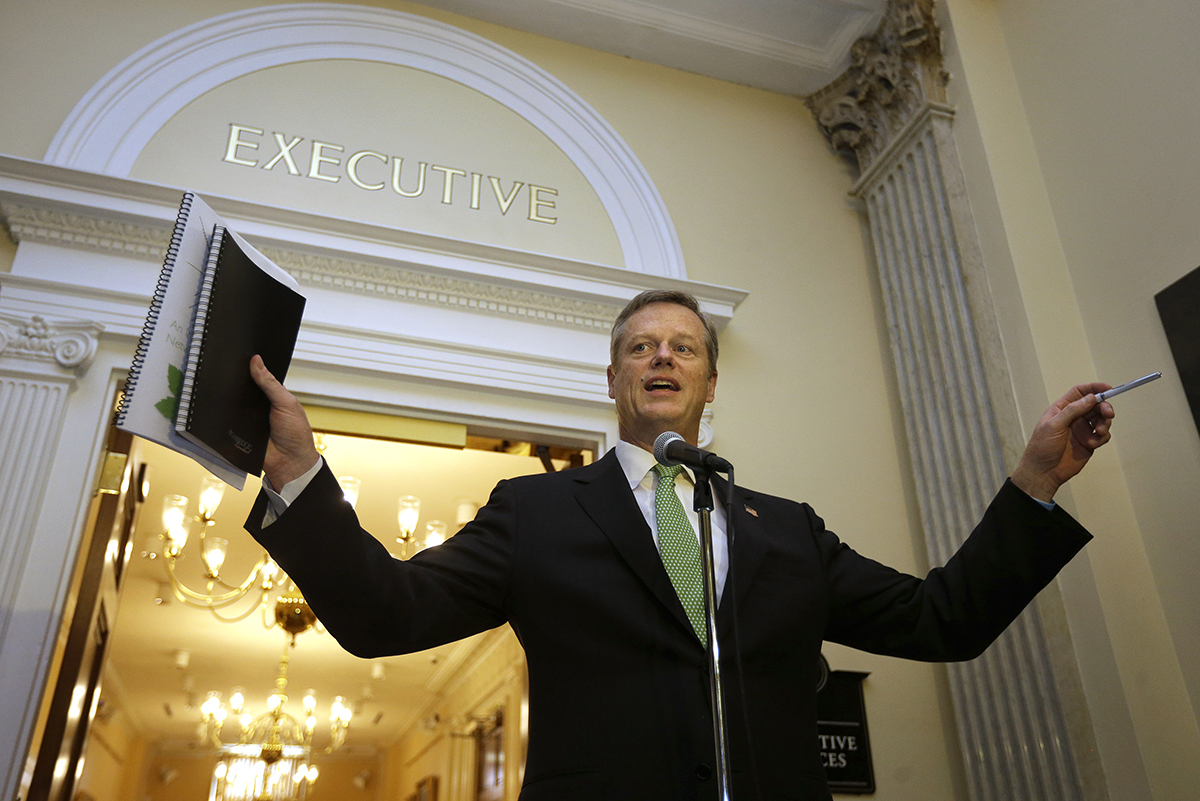WGBH Caller Recounts How Gov. Baker Blew the Bay State Championship Game

Photo via AP
Gov. Charlie Baker loves basketball. A defensive-minded power-forward for Harvard’s 1977-78 squad, the 6-foot-4 Baker still plays half-court games when he gets the chance.
Baker joined hosts Jim Braude and Margery Eagan on WGBH’s Boston Public Radio Thursday afternoon for an hourlong interview covering a range of topics, from the transgender public accommodations bill on Beacon Hill, to the recent New England Center for Investigative Reporting story highlighting pay-to-play practices plaguing the Registry of Motor Vehicles.
Then Brian in Dedham called.
“It’s always nice to talk to a fellow Bay State Leaguer,” an unsuspecting Baker greeted the caller, referring to the athletic conference in the Massachusetts Interscholastic Athletic Association’s District C. Baker was an all-conference player for Needham High School in the early 70s, as detailed in a 2014 Globe story tracing his and Attorney General Maura Healey’s playing days.
“You know, my uncle played against you in high school, and still tells the story about you inbounding the ball with 13 seconds left in the game once and losing the big game,” Brian said, guns blazing.
“Who is this?! Who are you?” Baker said.
“My name is Brian Keaney. My uncle is Frank Keaney. Played for Dedham High in the 70s.”
“That’s so funny,” Baker said. “You should tell Frank there were not 13 seconds left. There were two. Okay? And I threw the ball inbounds and Jeff Dillon blocked it. No excuses. Jeff Dillon blocked it, he laid it in, we lost by one point.”
Coincidentally, Dillon will be inducted into the Dedham High School Athletic Hall of Fame later this month. No word if Baker plans to attend the ceremony, held at the Holiday Inn in Dedham.
When asked if he had a question, or if he merely called in to dredge up a still-traumatic episode of personal defeat for the governor, Brian asked the governor why his text messages with Mayor Marty Walsh were not made available under the public records law. You can listen to the full interview here.

